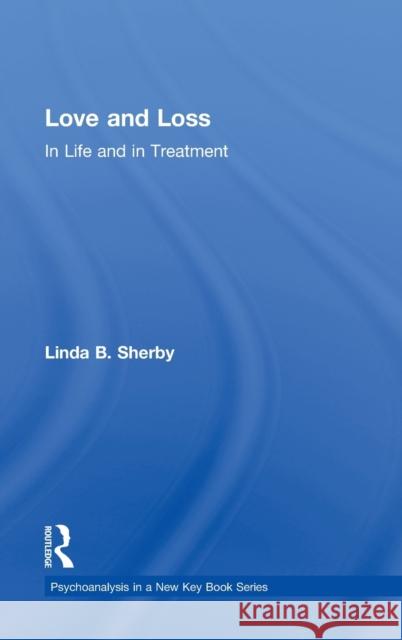Love and Loss in Life and in Treatment » książka
Love and Loss in Life and in Treatment
ISBN-13: 9780415888936 / Angielski / Twarda / 2013 / 204 str.
Love and Loss in Life and in Treatment
ISBN-13: 9780415888936 / Angielski / Twarda / 2013 / 204 str.
(netto: 676,35 VAT: 5%)
Najniższa cena z 30 dni: 653,11
ok. 22 dni roboczych.
Darmowa dostawa!
Have you ever wondered what a therapist really thinks? Have you ever wondered if a therapist truly cares about her patients? Have you tried to imagine the unimaginable, the loss of the person most dear to you? Is it true that 'tis better to have loved and lost, than never to have loved at all?' Love and loss are a ubiquitous part of life, bringing the greatest joys and the greatest heartaches. In one way or another all relationships end. People leave, move on, die. Loss is an ever-present part of life. In Love and Loss, Linda B. Sherby illustrates that in order to grow and thrive, we must learn to mourn, to move beyond the person we have lost while taking that person with us in our minds. Love, unlike loss, is not inevitable but, she argues, no satisfying life can be lived without deeply meaningful relationships. The focus of Love and Loss is how patients' and therapists' independent experiences of love and loss, as well as the love and loss that they experience in the treatment room, intermingle and interact. There are always two people in the consulting room, both of whom are involved in their own respective lives, as well as the mutually responsive relationship that exists between them. Love and loss in the life of one of the parties affects the other, whether that affect takes place on a conscious or unconscious level. Love and Loss is unique in two respects. The first is its focus on the analyst's current life situation and how that necessarily affects both the analyst and the treatment. The second is Sherby's willingness to share the personal memoir of her own loss which she has interwoven with extensive clinical material to clearly illustrate the effect the analyst's current life circumstance has on the treatment. Writing as both a psychoanalyst and a widow, Linda B. Sherby makes it possible for the reader to gain an inside view of the emotional experience of being an analyst, making this book of interest to a wide audience. Professionals from psychoanalysts and psychotherapists and bereavement specialists through students in all the mental health fields to the public in general, will resonate and learn from this heartfelt and straightforward book. Have you ever wondered what a therapist really thinks?











